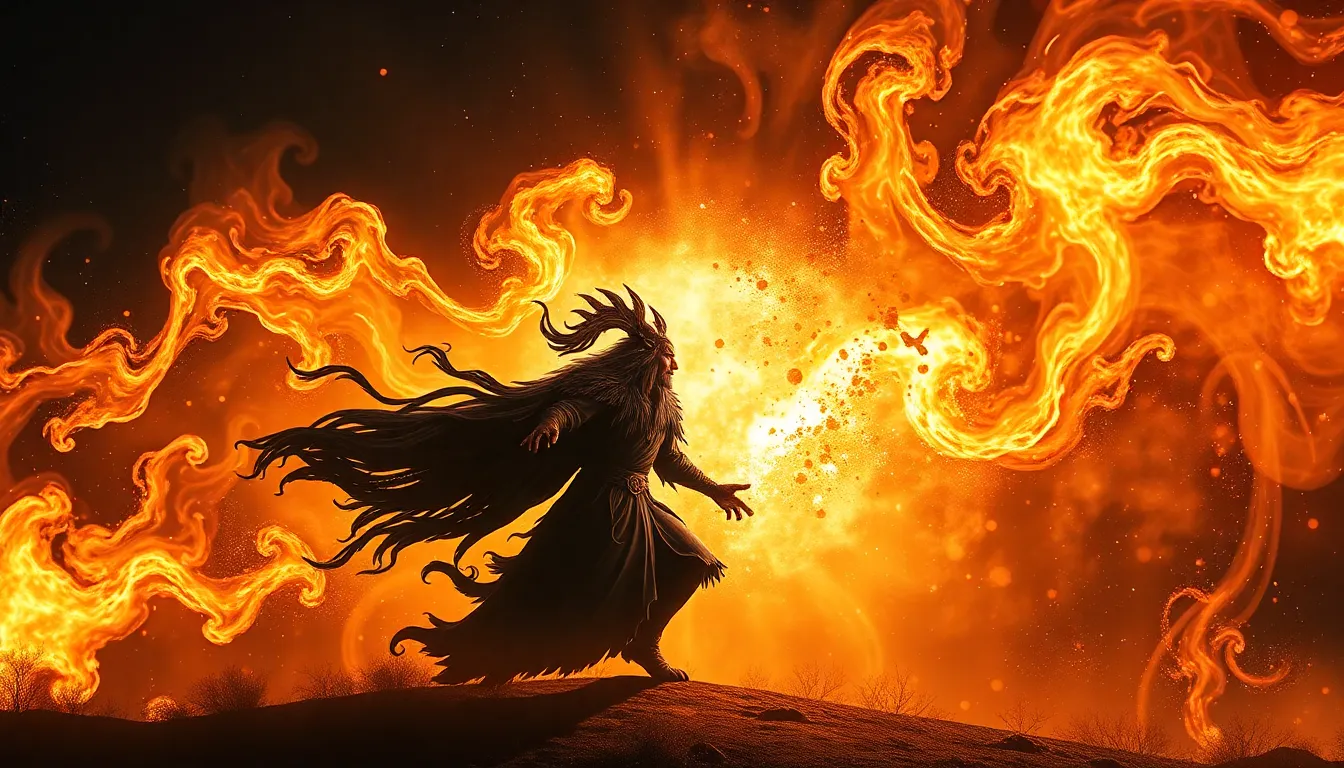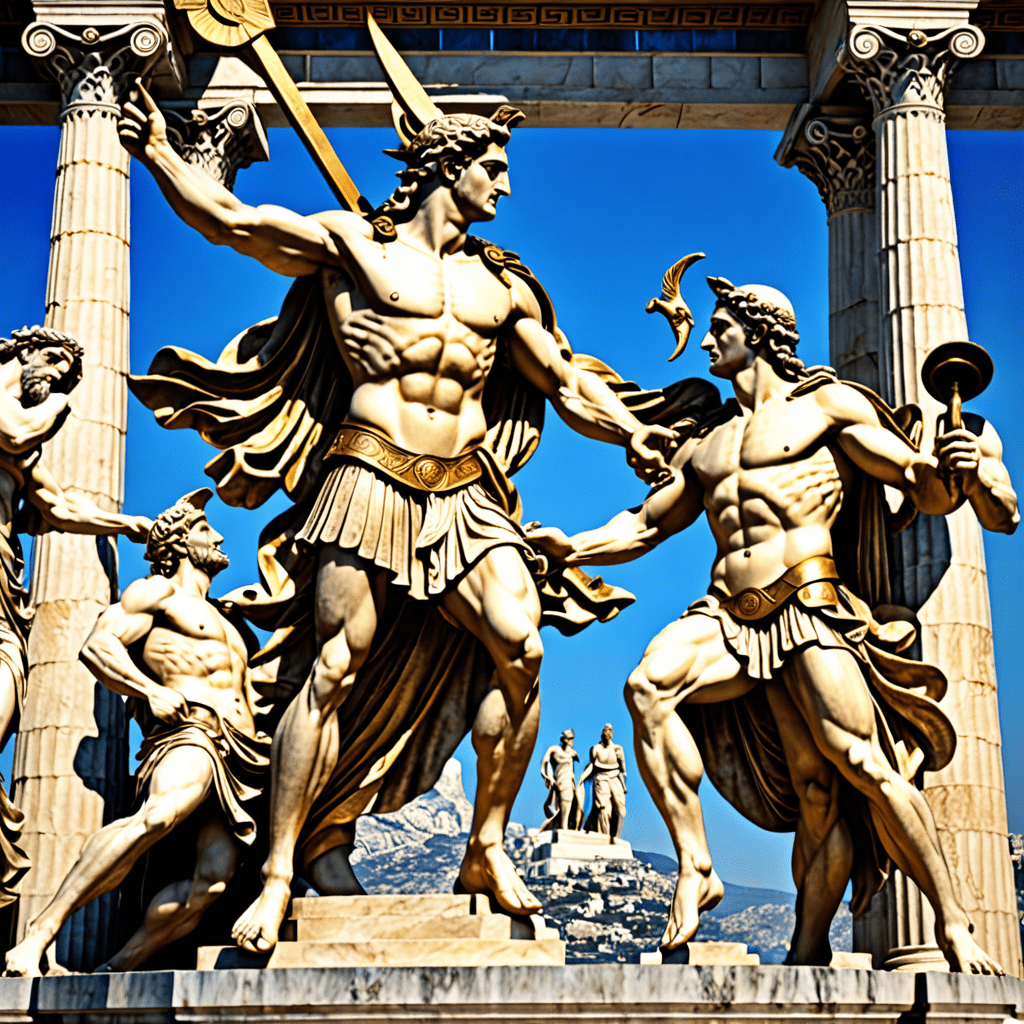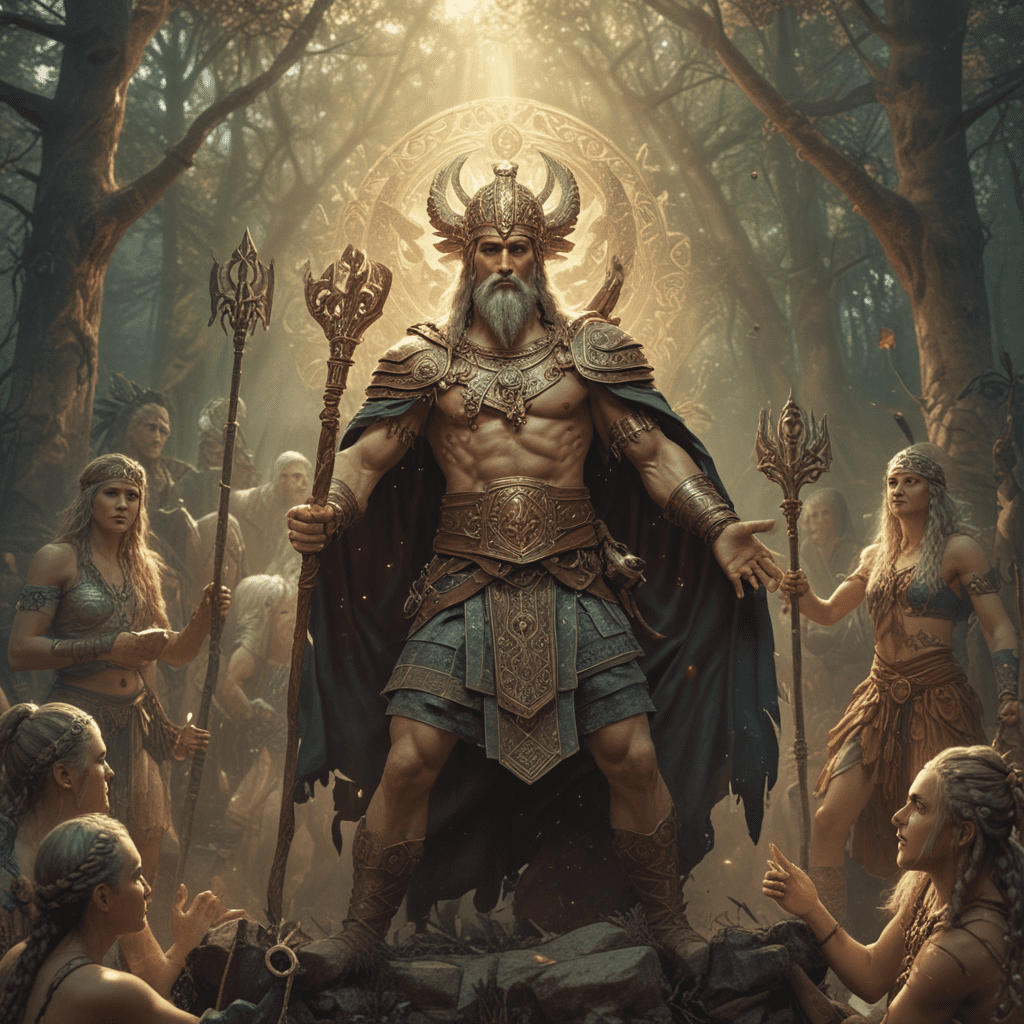The Transformative Power of Cultural Hero Myths
I. Introduction
Cultural hero myths are narratives that feature heroic figures who embody the ideals and values of a society. These myths often portray the hero’s journey and the challenges they face, serving as a reflection of cultural aspirations and fears. The importance of these myths lies in their ability to shape societies and individuals, providing frameworks for understanding identity, morality, and the human experience. This article will explore the transformative power of cultural hero myths, examining their historical context, key elements, psychological impact, and modern adaptations.
II. Historical Context of Hero Myths
The origins of hero myths can be traced back to ancient cultures, where they served as a means to explain natural phenomena, societal norms, and human behavior. These narratives evolved over time, adapting to the changing values and beliefs of societies.
- Ancient Civilizations: In civilizations such as Mesopotamia, Greece, and Egypt, hero myths often featured demigods or mortals endowed with extraordinary abilities.
- Middle Ages: The rise of chivalric tales introduced heroes who embodied honor, bravery, and courtly love.
- Modern Era: Contemporary narratives often challenge traditional hero archetypes, showcasing flawed characters and complex moral dilemmas.
A comparative analysis of hero myths across different cultures reveals common themes and motifs, such as the quest for identity, the struggle against adversity, and the pursuit of justice. These universal elements highlight the shared human experience across diverse societies.
III. Key Elements of Hero Myths
Hero myths are characterized by common archetypes and motifs that resonate deeply with audiences. Understanding these elements can enhance our appreciation of the narratives and their significance.
- Common Archetypes: Heroes, mentors, tricksters, and villains are prevalent figures in hero myths, each serving a specific role in the narrative.
- The Hero’s Journey: This concept, popularized by Joseph Campbell, outlines stages such as the call to adventure, facing trials, and achieving transformation.
- Role of Antagonists and Allies: The presence of adversaries and supportive characters enriches the narrative, illustrating the complexities of morality and human relationships.
IV. Psychological Impact of Hero Myths
The psychological impact of hero myths is profound, influencing individual identity and self-perception. Carl Jung’s concept of the collective unconscious suggests that archetypal images, such as heroes, resonate with people on a subconscious level.
- Influence on Identity: Hero myths often serve as models for behavior, shaping individuals’ understanding of courage, sacrifice, and resilience.
- Healing Power: Myths provide comfort and guidance in times of trauma, helping individuals cope with adversity by allowing them to identify with heroic figures.
V. Cultural Reflection and Critique
Hero myths are a reflection of societal values and norms, often reinforcing or challenging prevailing ideologies. While they can inspire, they can also perpetuate harmful stereotypes.
- Societal Values: Myths often reflect the aspirations and anxieties of a culture, providing insight into what is deemed heroic or worthy.
- Criticism: Traditional hero narratives have faced criticism for promoting colonialism, toxic masculinity, and limited representations of gender roles.
- Emergence of Anti-Heroes: Modern narratives increasingly feature anti-heroes and complex characters who challenge conventional notions of heroism.
VI. Modern Adaptations and Interpretations
In contemporary literature and cinema, hero myths have evolved to reflect modern values and societal issues.
- Contemporary Literature: Authors are reimagining traditional hero tales, infusing them with current social and political themes.
- Cinema: Films often depict heroes grappling with moral ambiguity and personal flaws, creating relatable characters.
- Technology and Media: The rise of social media has enabled rapid dissemination of new hero narratives, allowing diverse voices to contribute to the myth-making process.
VII. The Role of Hero Myths in Social Change
Hero myths have historically played a crucial role in inspiring social movements and advocating for change.
- Case Studies: Figures like Martin Luther King Jr. and Malala Yousafzai have become modern heroes, symbolizing the fight for civil rights and education.
- Storytelling Power: Myths mobilize communities, fostering solidarity and a shared vision for a better future.
- Envisioning Alternatives: Myths can challenge the status quo, encouraging communities to imagine and strive for alternative futures.
VIII. Educational Applications of Hero Myths
Hero myths can serve as powerful educational tools, helping to teach values and promote critical thinking.
- Values Education: Myths can illustrate ethical dilemmas and the importance of virtues such as bravery, empathy, and integrity.
- Cultural Awareness: Incorporating diverse hero narratives into curricula can foster understanding and appreciation of different cultures.
- Critical Thinking: Analyzing hero myths encourages students to question societal norms and reflect on their own beliefs.
IX. The Future of Hero Myths
The future of hero myths is likely to be shaped by globalization and technological advancements.
- Globalization: As cultures continue to interact, new hybrid hero narratives may emerge, reflecting a blend of traditions.
- Social Media Impact: Platforms like Instagram and TikTok allow for the rapid creation and sharing of new hero stories, democratizing myth-making.
- Inclusivity: There is a growing demand for inclusive and diverse hero myths that represent underrepresented voices and experiences.
X. Conclusion
The transformative power of cultural hero myths lies in their ability to inspire, challenge, and reflect the human experience. As we explore and reinterpret our personal and cultural hero stories, we can uncover deeper meanings and insights. Hero myths remain a relevant and enduring aspect of our lives, inviting us to envision a world that celebrates diversity, resilience, and the potential for change.



